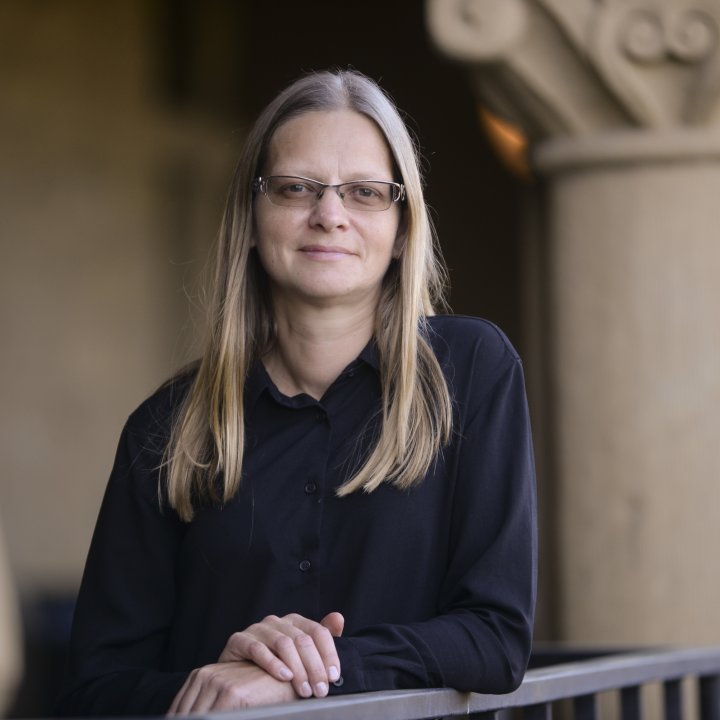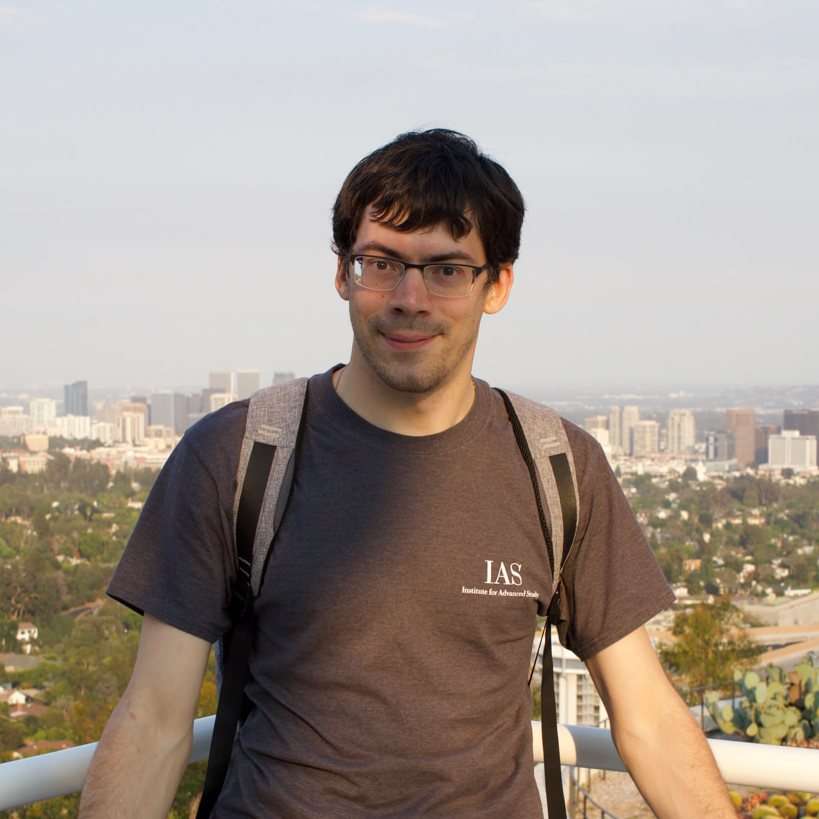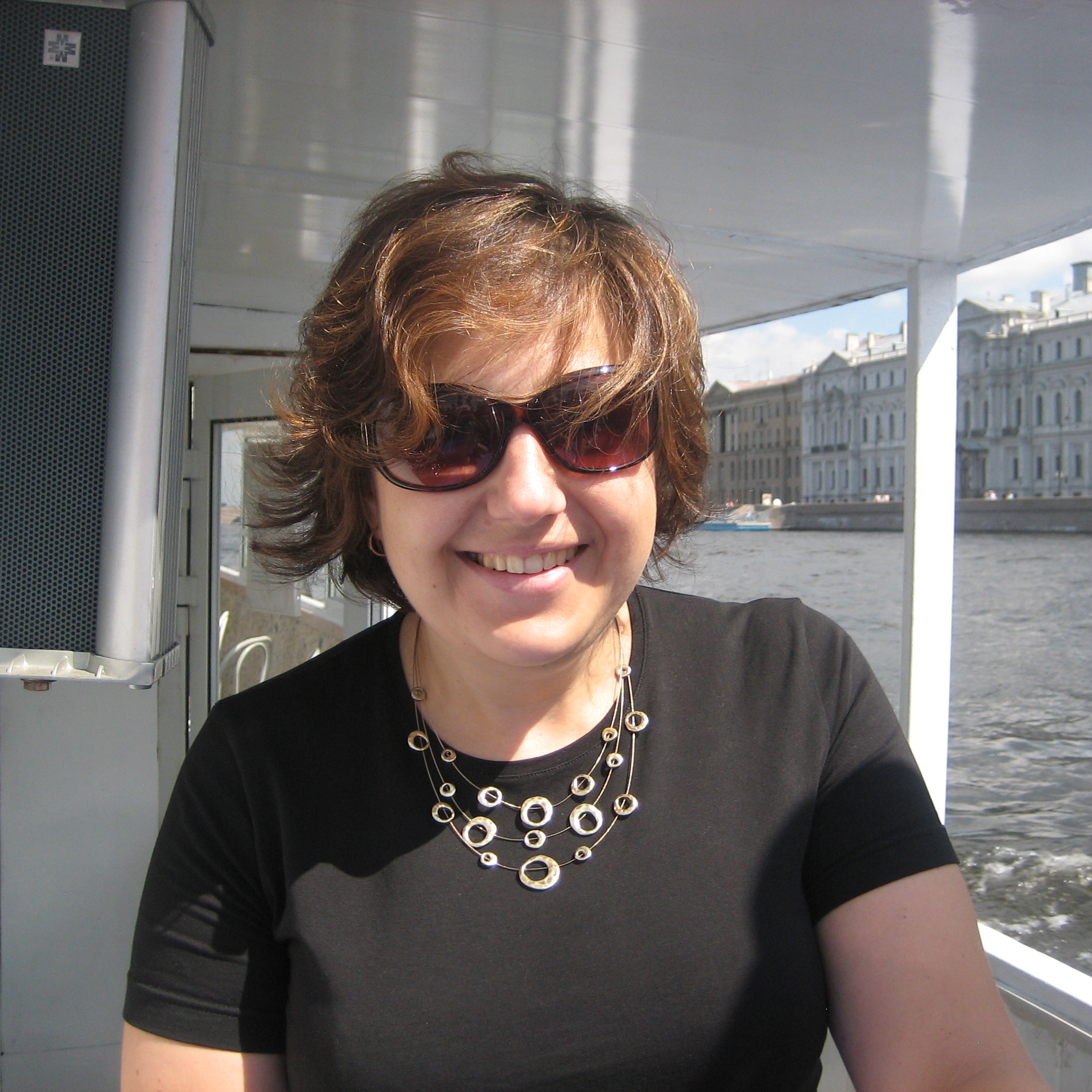School "Analysis, Probability, Mathematical Physics"
Online
Analysis, Probability, Mathematical Physics
November 30 – December 4, 2020
An advanced school for young researchers featuring three minicourses in vibrant areas of mathematics. The target audience includes graduate, master and senior bachelor students of any mathematical speciality.
The lecture notes and exercises are below on this page
Lecturers:

Eugenia Malinnikova |

Ilya Kachkovskiy |

Tatiana Nagnibeda |
Courses:
Many forms of the Uncertainty Principle (Eugenia Malinnikova)
There are many mathematical interpretations of the uncertainty principle, which states that the position and momentum of a quantum particle cannot be measured simultaneously or that a signal cannot be well-localized both in time and in frequency. In this series of lectures we discuss both the classical statements and their more recent counterparts.
Lecture 1: Heisenberg, Hardy, and Beurling
The classical Heisenberg principle shows that a function and its Fourier transform cannot be localized simultaneously. This mathematical formulation is well-known and follows from the fact that two important operators do not commute. In the first lecture, we discuss the special role played by the Gaussian function in the classical uncertainty relations and formulate a surprising result of Bourgain about a basis consisting of almost perfectly localized functions. We also plan to explain Beurling's and Hardy's uncertainty principles.
Lecture 2: Benedicks and Logvinenko-Sereda
The celebrated theorem of Bededicks states that there is no function that together with its Fourier transform is supported by a set of finite measure. We discuss quantitative versions of the result, survey some beautiful inequalities of Fedya Nazarov, and prove the Logvinenko-Sereda theorem on supports of the function and its Fourier transform. The last aim is, if time permits, to formulate a simplified version of the recent results of Bourgain and Dyatlov and Dyatlov and Jin, which are named the fractal uncertainty principle.
Lecture 3: Slepian-Pollak-Landau
In a remarkable series of works, Slepian, Pollak, and Landau considered a problem of approximation of a function on a given interval $[-T/2,T/2]$ under the assumption that its frequencies lie in the interval $[-W,W]$. In the1960s, they constructed a basis of prolate spheroidal functions, which has a number of fascinating properties. The aim of this lecture is to present their main result, the $2WT$ theorem, and review some further developments on the subject.
Lecture 4: Comments and problems solution
Localization for quasiperiodic operators with monotone potentials (Ilya Kachkovskiy)
Anderson localization for single-particle quantum systems occurs when the spectra of the corresponding Hamiltonians are purely point and the eigenfunctions decay exponentially. In the physical language, this corresponds to the system being an insulator and was originally discovered by P. Anderson for disordered systems with random potentials. Later, similar phenomena were observed in non-random systems, such as operators with quasiperiodic potentials associated to irrational rotations of the tori. Methods of proof of localization are often quite technical and involve dealing with small denominator problems and KAM resonances. The goal of this course is to study some of these techniques on a large class of examples where the sampling functions for the quasiperiodic potentials are not continuous, but satisfy certain Lipschitz monotonicity properties. For these systems, one can obtain localization in (surprisingly) high generality, but the proofs are less technical, since the resonances have simple structure, or there are no resonances at all. Still, the proofs share many common features with more complicated examples and can serve as an accessible introduction to the subject.
Lecture 1: Overview of one-dimensional methods for ergodic and quasiperiodic operators
In this lecture, we will introduce basic concepts of general spectral theory (the spectral theorem), sufficient conditions for Anderson localization (Schnol-type theorems), and elements of spectral theory of ergodic operators (Lyapunov exponents, integrated density of states, Thouless formula, Kotani theory).
Lecture 2: Large deviation techniques for one-dimensional monotone quasiperiodic operators
In this lecture, we will study the main consequences of monotonicity: estimates for eigenvalue counting functions on boxes and large deviation theorems, both of which are specific for operators with monotone potentials. Afterwards, we will outline the proof of Anderson localization.
Lecture 3: Perturbative methods for multi-dimensional operators with monotone potentials.
The methods for Lectures 1 and 2 are specific for the one-dimensional case. In this lecture, we will discuss several approaches to multi-dimensional problems, based on KAM-type arguments (following Bellissard–Lima–Scoppola) and on direct analysis of Rayleigh–Schrodinger perturbation series. Most of this lecture is independent of Lectures 1 and 2.
Lecture 4: Comments and problems solution
Probability on graphs and groups (Tatiana Nagnibeda)
Starting with the work of John von Neumann on the Banach-Tarski Paradox, many interesting connections have emerged between the study of infinite (in these lectures, finitely generated) groups and their actions on one hand and probability theory, measure theory and functional analysis on the other hand. In the minicourse we will survey some of these connections, from the more classical ones of expansion and amenability and going on to the more recent study of some models from statistical mechanics on Cayley graphs.
Lecture 1: Spectra of graphs and expanders
We will look at the notion of expansion from geometric and spectral prospectives. We will discuss constructions of infinite families of expanders and the related notions of (non)-amenability and Kazhdan’s Property (T).
Lecture 2: Random walks on groups and graphs
We will start with Kesten’s criterion that characterizes amenable groups in terms of asymptotic behaviour of random walks on their Cayley graphs and will discuss its relevance to the solution of the so-called von Neumann’s Problem. We will also discuss the more recent, ergodic and geometric variations of the problem that, contrary to the classical one, have positive solutions.
Lecture 3: Models of statistical physics on Cayley graphs
We will start with percolation on Cayley graphs and discuss its relation to amenability and other asymptotic properties of the group. Time permitting, we’ll also touch upon some other models, e.g., the uniform spanning forest and the Abelian sandpile model.
Lecture 4: Comments and problems solution
Institutions participating in the organization of the event:
- AADI Driss
- Abakumov Evgeny
- Abildaev Temirlan
- Abrar Ahmad Muchlas
- Adam HAMMAM
- Agneessens Kevin
- AGRAWAL RISHIKA
- Ahmed Azza
- Ahmed Deblij
- Aishwarya Gautam
- Akhtiamov Danil
- Alexander Fedotov
- Allal Ghanmi
- Ambrus Gergely
- Amosov Grigori
- Anand Vishal
- Ananyevskiy Alexey
- Anass Bouaichi
- Anna Sergeenko
- Anthony Gauvan
- Artem Zvavitch
- Bac Adam
- Badea Catalin
- Bahajji-El Idrissi Hafid
- Baibulov Ilnur
- Baraquin Isabelle
- Bartczak Maciej
- BENAHMADI ABDELHADI
- Berge Stine Marie
- Bessonov Roman
- Bhadra Shayon
- Bhat B V Rajarama
- Bilich Jordan
- Binder Ilia
- Bobkov Vladimir
- Bochkov Ivan
- Bolaños Wilmar
- BOURASS Marouane
- BOUZOUR Omar
- Bufetov Alexey
- Butaev Almaz
- Cañaveral Davidson
- Chao Brian
- Chovelidze Naira
- Christiansen Jacob
- Corentin Bodart
- Costa Júnior Fernando
- Cronvall Joakim
- Cécilia Lancien
- Córdoba López Rafael
- D Yogeshwaran
- Daniel Willhalm
- Davydov Youri
- de la Torre Víctor
- Decio Stefano
- Deka Leena
- Del Corral César
- DKHISSI HAJAR
- Dmitry Zaporozhets
- Dobronravov Egor
- Dobronravov Nikita
- Dorodnyi Mark
- Dr Nandeesh K. C
- El alaoui Brahim
- El Allali Zakaria
- El mahdi Sahtouti
- EL-MAAYAR Mousaab
- ELKACHKOURI ABDELATIF
- Ervedoza Sylvain
- Eskenazis Alexandros
- Essenhajy Mohamed
- Faedi Loulidi
- Fatima Ezzahra FIKRI
- Fedele Emilio
- Fernández-Bertolin Aingeru
- Filimonova Arina
- Filippas Spyridon
- Forghani Behrang
- Frolov Andrei
- Gaisina Galiya
- Ganguly Pritam
- Garg Rahul
- Georges Kassis
- Georgii Veprev
- Ghosh Indrajit
- Giraudo Davide
- Glucksam Adi
- González-Baron Nicolas
- Gordina Masha
- Gubkin Pavel
- Gupta Shubham
- Górny Wojciech
- Hajar SABIKI
- HANINE ABDELOUAHAB
- Hearnshaw Peter
- Heath Emily
- Hedenmalm Haakan
- Hegde Akshay
- Hicham El Bouanani
- Hicham MOUSSA
- Hindov Raul
- Hume David
- Ilya Losev
- Iz-iddine El-Fassi
- Izyurov Konstantin
- JABBAR Mohammed
- Jhawar Sanjoy Kumar
- Joelle Jreis
- Julio Narciso Argota Quiroz
- Kalimulina Elmira
- Kanekar Rahul Raphael
- Kapustin Vladimir
- Karagodin Nikita
- Karim chourti
- Kashlak Adam B
- Kasso Okoudjou
- Kayumov Ilgiz
- Kellay Karim
- khalil chaimaa
- Khammatova Diana
- Khasyanov Ramis
- Khliustov Dmitrii
- Khristoforov Misha
- Knutsen Helge
- Kondratyuk Kirill
- Koniukov Georhii
- Kononova Anna
- Kouroupis Athanasios
- Krachun Dmitry
- Krishnapur Manjunath
- Krymskii Stanislav
- Krzywicki Piotr
- Kulikov Aleksei
- Kumar RAJAT
- Kustra Kamil
- Kutek Dominik
- Kuznetsov Alexander
- Kuznetsova Mariya
- Kuznetsova Yulia
- Kévin Le Balch'
- LABGHAIL Imane
- Laishram Narendra Singh
- Lamberto Kenzi
- Lamrhari Ilias
- Lamsaf Khalil
- Liontou Vasiliki
- Lishanskii Andrei
- Lorist Emiel
- Malicet Dominique
- Malysheva Svetlana
- Manna Ramesh
- Marcu-Antone Orsoni
- Martin Rapaport Martin Rapaport
- Marzo Jordi
- Meshkova Yulia
- Michel Davydov
- Miss Rajni Goel
- Mkadmi Fouzia
- Mohamed El massaoudi
- MOHAMMED AHRAMI
- MOHAMMED AHRAMI
- Mohammed BOUSARGUINI
- Mohammed Ziyat
- MONAIM Hakim
- Moseeva Tatiana
- Mouhcine Zakariyae
- Mozolyako Pavel
- Muñoz-Moncayo Carlos
- Myroshnychenko Sergii
- Naainia Imane
- Nagarajan Ragul
- Nasution Anwar Efendi Nasution
- Nazarov Anton
- Nikolaev Artem
- Nistor Mihaela Adriana
- Nitzan Shahaf
- Nwabufo Ifeoma Veronica
- olga lucia Paez Beltran
- Opoka Radosław
- Ortega Miquel
- Oumazouz Zhour
- Ovechkin Grigory
- Parshina Olga
- Pavel Ievlev
- Pavel Nikitin
- Pechersky David
- Philippe Jaming
- Piatnitski Andrey
- Pirogov Sergey
- Platonova Mariia
- Polina Perstneva
- Politou Eva
- Postnova Olga
- Pradhan Vishal
- Przybyłowski Tomasz
- Pushnitski Alexander
- pyshkin alexey
- R Ramesh
- Rahim Nurhidaya
- Raja Lhamri
- Ran Anja
- Randrianantoanina Beata
- Rathore Karan
- Ravikumar Hariprashad
- Richards Larissa
- Roig Sanchis Anna
- Roncal Luz
- Roy Choudhury Bharath
- Rozendaal Jan
- Rudelson Mark
- Ryabogin Dmitry Ryabogin
- Rządkowska Katarzyna
- Sabitbek Bolys
- Said Fahlaoui
- Said Said Al Afghani
- Samuelsen Helge Joergen
- Sana Suvadip
- Sanaz Pooya
- sartori Andrea
- Sarvesh Iyer
- Sayeh Khaniha
- Schechtman Gideon
- Scholtens Robbert
- Schwartz Nir
- Sebastian Cojocariu
- Sengupta Banhirup
- Shankar Praful
- Shaposhnikov Alexander
- Sharma Om Prakash Kumar
- Sharma Shubham
- Shchetka Ekaterina
- Simarova Kate
- Slpov Nikolai
- Smirnova Ekaterina
- Stankov Bogdan
- STAVRIANIDI ALEXANDRA
- Sterlin Mikhail
- Sudan Xing
- Susanna Dann
- Svyatoslav Novikov
- Sygal Emanuel
- Taljan Kyle
- TANG YIYU
- Tantalakis Christos
- Tarnowski Michal
- Teali Aajaz
- Thangavelu Sundaram
- Tijuana Guava
- Tomilov Yuri
- Treil Sergei
- Trojan Bartosz
- Tselishchev Anton
- Turova Tatyana
- Uwe Franz
- Vamvaka Vasiliki
- Victor Kleptsyn
- Videnskii Ilya
- Vignesh Subramaniyan
- Villaquirá Julián
- Vysotsky Vladislav
- Weinmann Timon Ruben
- Wendt Erik
- Wiącek Piotr
- Yacin Ameur
- yang wen
- Yassine Amhamdi alaoui
- Youssef Elmadani
- Yulia Petrova
- Zheng Xiaoyu
- Zhizhina Elena
- Świderski Grzegorz
- Белова Анна
- Евгений Печерский
- Мухаметрахимова Альбина